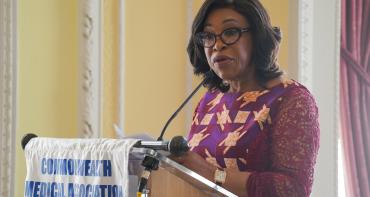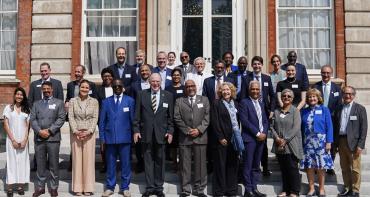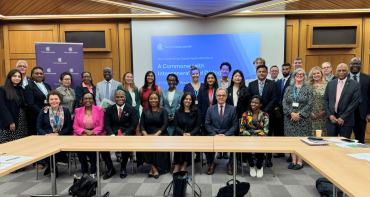The Commonwealth Secretariat marked London Global Cancer Week by hosting a high-level event to reflect on the Commonwealth’s commitment to eliminating cervical cancer as a public health problem.
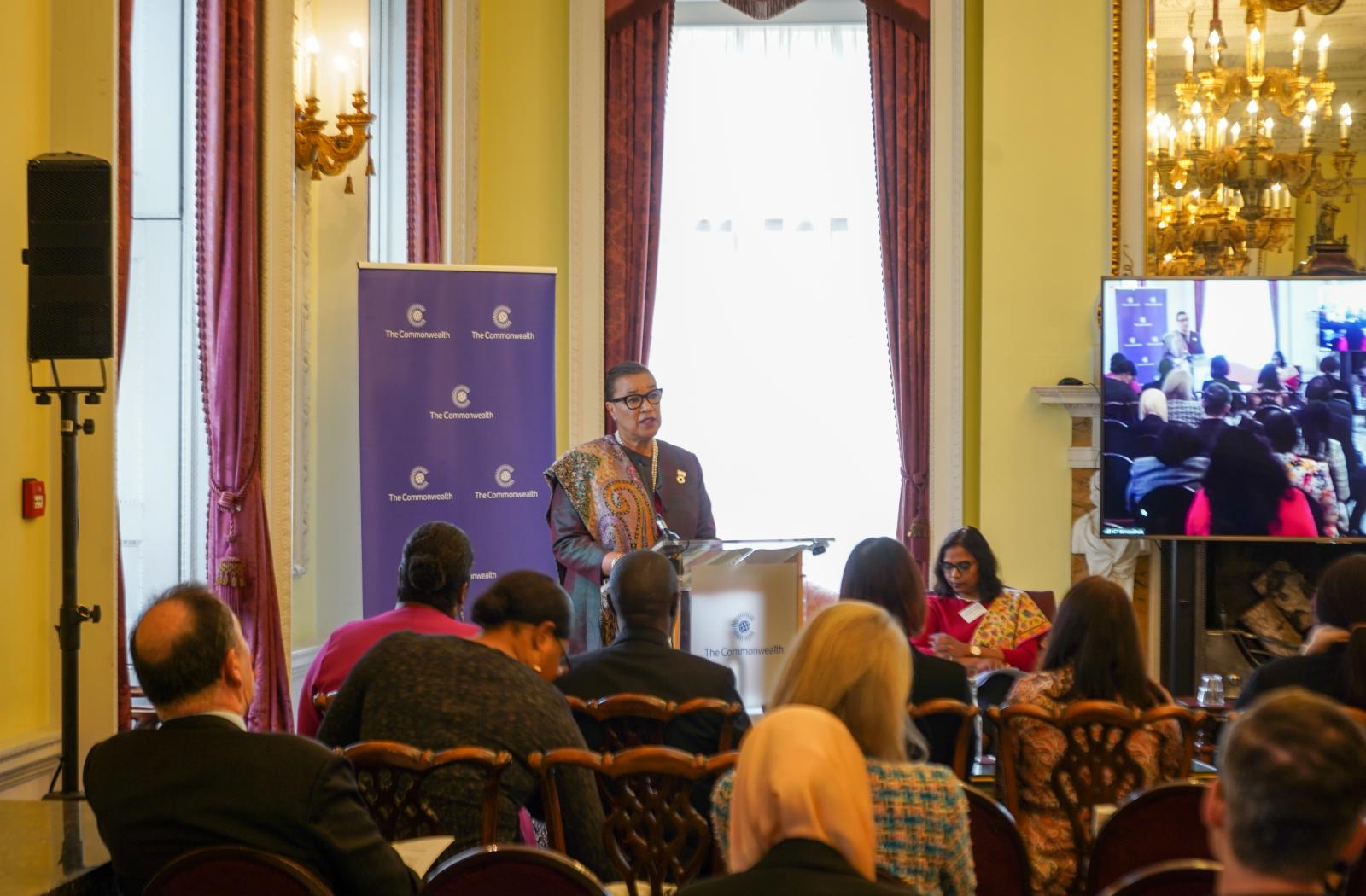
Cervical cancer is one of the most preventable and treatable forms of cancer, if detected early and managed effectively. However, the Commonwealth carries a significant cervical cancer burden, particularly in its low- and middle-income countries.
Taking place nearly six months after the Commonwealth Heads of Government Meeting (CHOGM), where leaders committed to ensuring that all girls aged between 9-13 years will have access to immunity from human papillomavirus (HPV) infection through vaccination by 2025, the event offered a chance to build upon those declarations and harness opportunities for collaboration.
It brought together Commonwealth high commissioners, cancer survivors and advocates, members from civil society and multilateral organisations and other key stakeholders to discuss the theme ‘The Road to 2025: Achieving Elimination of Cervical Cancer in the Commonwealth’.
Participants at the event heard that whilst the Commonwealth represents only 30 per cent of the world's population, it accounts for 40 per cent of global cervical cancer incidence and 43 per cent of cervical cancer mortality. If steps are not taken to radically reduce the rising incidence by 2030, the Commonwealth can expect the number of new cases of cervical cancer to climb by 55 per cent and deaths by 62 per cent over the same period, with one woman dying every two minutes.
In her keynote address, the Commonwealth Secretary-General, The Rt Hon Patricia Scotland KC, urged a collaborative approach to accelerate efforts towards cervical cancer elimination. She said:
“With an estimated 60 million lives saved globally if we achieve elimination, there has never been a stronger case for action. But we need to have a collective voice, and collective action. And we need everyone at the table. It is our shared duty to reduce and ultimately prevent this unnecessary tragedy.”
The Secretary-General noted that the Secretariat is on hand to support member countries with the tools, resources, and expertise to accelerate national and regional efforts through initiatives such as the International Taskforce for Cervical Cancer Elimination and the Voluntary Information and Price Sharing Database.
Collective action to accelerate elimination
The event coincided with the second anniversary of the World Health Organization’s (WHO) Cervical Cancer Elimination Day of Action. Under the Global Strategy for Cervical Cancer Elimination, WHO is calling on countries to meet the 90-70-90 targets by 2030 to get on the path to eliminating cervical cancer within the next century.
Speaking at the occasion via video link, Dr Princess Nono Simelela, WHO’s Assistant Director-General and Special Advisor to the Director-General, Strategic Priorities, commended the Commonwealth countries that have continued to make progress by developing strategies and adopting action plans to reach the elimination targets.
She also underscored the need to close the gap with regard to disparities and inequities between high, low and middle-income countries, as well as among marginalised and neglected communities. She said:
“We cannot remain complacent in accepting the inequities that persist within countries and across borders within the Commonwealth. Our efforts must address the social and systemic obstacles that prevent women and girls from enjoying their right to health.”
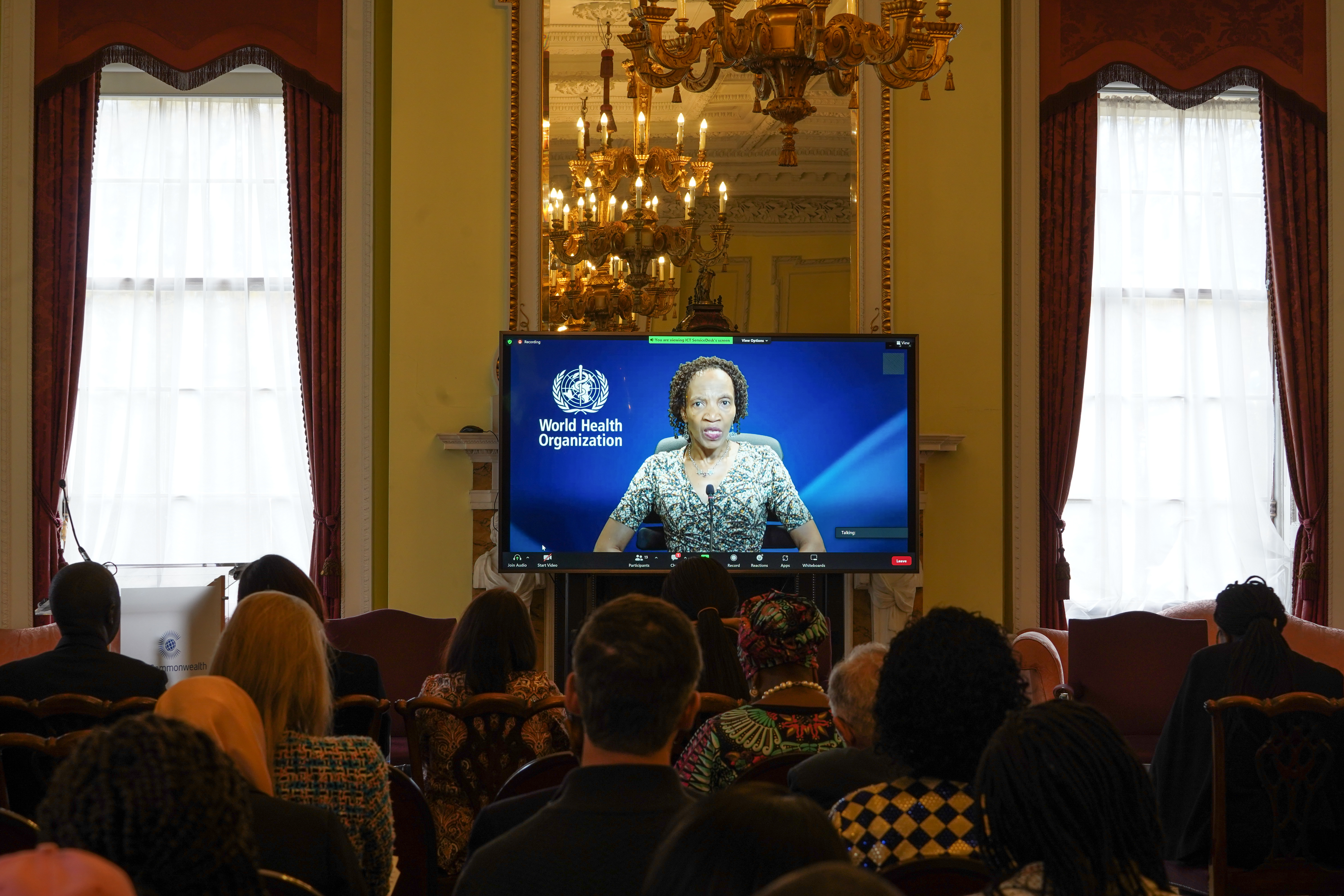
Dr Princess Nono Simelela, WHO’s Assistant Director-General and Special Advisor to the Director-General
At CHOGM in June, first spouses and partners discussed the importance of cervical cancer elimination and the role they could play as champions to support efforts to eliminate the disease. In a video message, the First Lady of The Bahamas, H.E. Mrs Ann Marie Davis, said:
“The Commonwealth has a unique opportunity to provide leadership and to act as a global and regional catalyst for bringing together major stakeholders involved in the fight against cervical cancer. The first spouses are well placed to bridge the political will to see positive change and our health system's ability to affect this change.”
Get informed; get screened; get vaccinated: Voices from survivors and civil society
Participants also heard from cervical cancer survivors, who spoke about their personal experiences with the disease.
Karen Nakawala, CEO of Teal Sisters of Zambia, who was diagnosed in 2019, said that her motivation to become an advocate stemmed from her awareness of the misinformation, myths and misconceptions regarding cervical cancer.
She said:
“Cervical cancer does not discriminate. It does not matter who you are, where you come from, what you are, or what colour you are…you can have cervical cancer.
We should all be angry that women are still dying from cervical cancer while we can do something about it here and now.”
She was joined by Gemma Patten, a cervical cancer survivor from the UK and an advocate for Jo’s Cervical Cancer Trust. Having been diagnosed with a rare form of cervical cancer, Gemma, in an impassioned plea, encouraged women and girls to go for their smear tests and get any symptoms checked out.
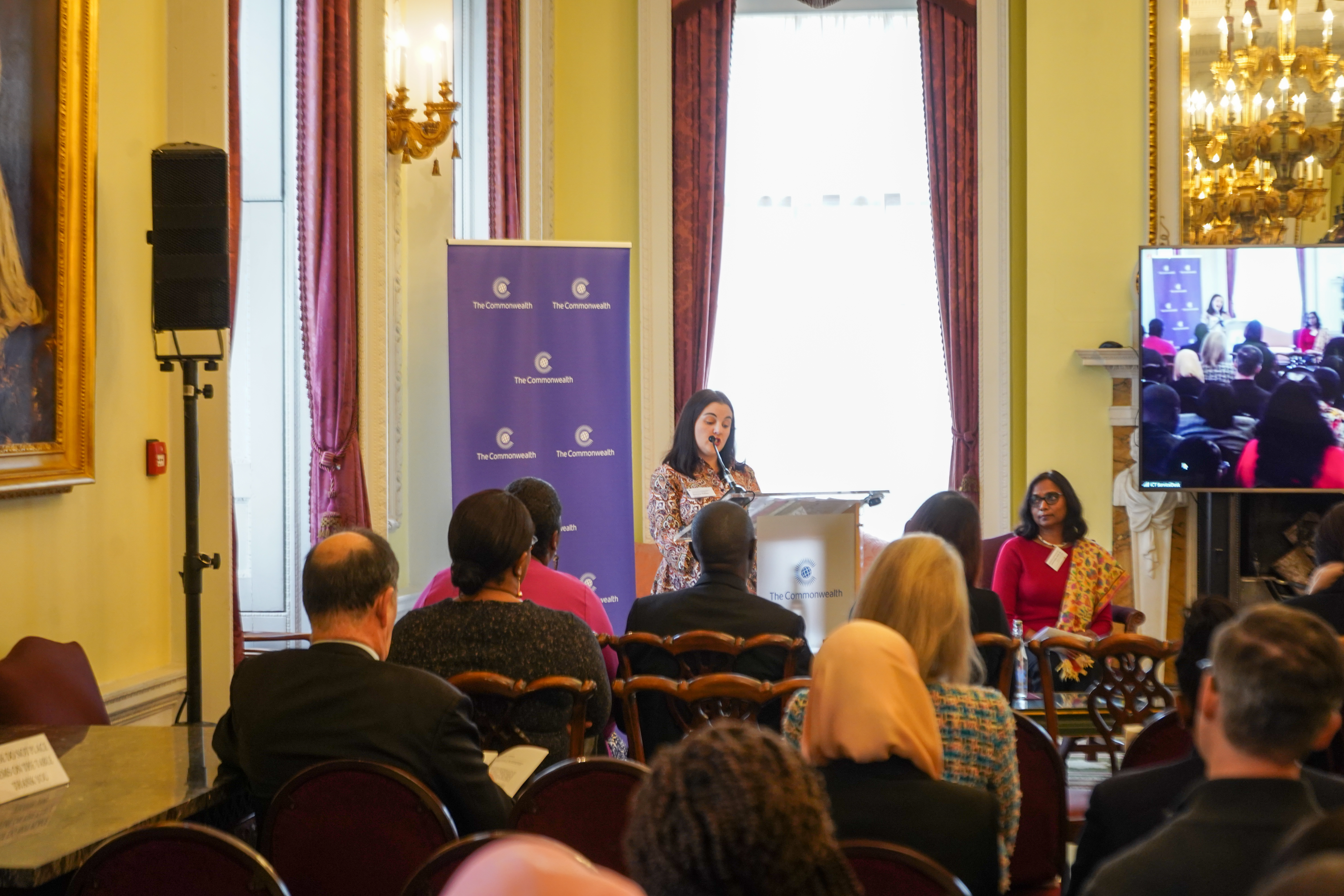
She said:
“As a young adult, I had no idea what a smear test was. I think more information needs to be given to girls and young women, so they know exactly what a smear test is and its importance. So many women put off their tests and for this reason, I will always share my story and encourage women to go. If sharing my story encourages one woman to book her appointment, that is enough for me.”
Breast cancer survivor, Uzoamaka Nwamarah, a Climate Change Adviser at the Commonwealth Secretariat, also shared her experience of receiving her cancer treatment in the UK and noted the vast disparities in access to cancer provisions across the Commonwealth.
Representing civil societies, participants heard from Dr Simone Mensah, Vice President at the Sylvia Bongo Ondimba Foundation who highlighted Gabon’s “Action Against Cancer” programme aimed at fighting against female cancers, guided by three pillars – Prevention, Treatment and Support. Samantha Dixon, Chief Executive Officer at Jo’s Cervical Cancer Trust, the UK's leading cervical cancer charity, spoke about UK’s efforts to eliminate cervical cancer and their new campaign which will be launched during Cervical Cancer Prevention Week in January 2023. Dr Lisa Stevens, the International Atomic Energy Agency’s Director for the Programme of Action for Cancer Therapy (PACT) addressed the global inequality in access to cancer care.
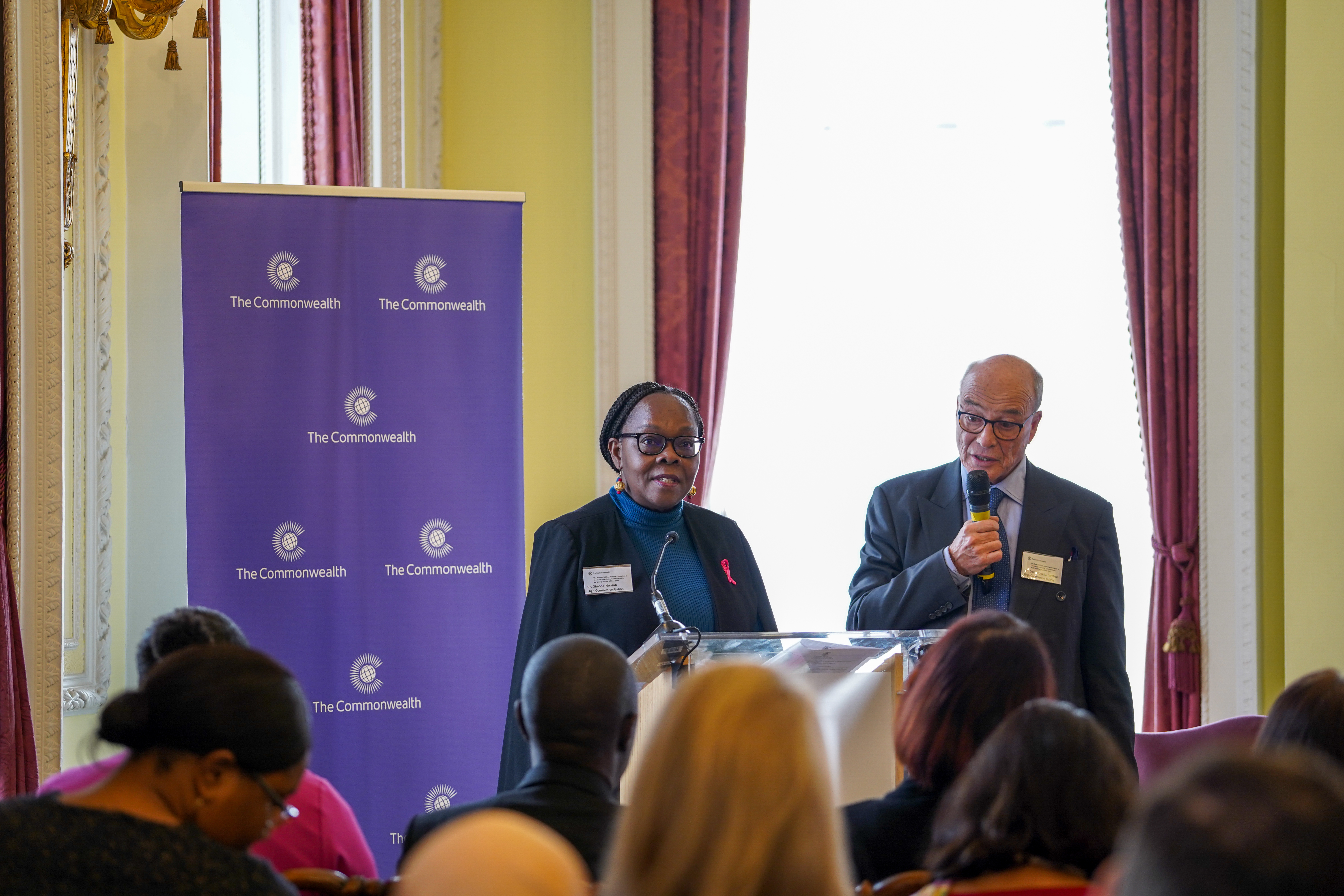
Dr Simone Mensah, Vice President at the Sylvia Bongo Ondimba Foundation
Representing Commonwealth youth, Anita Graham, from the Alliance for Active Action Against HPV (A4HPV), a task force hosted under the auspices of the Commonwealth Youth Health Network, advocated for increased awareness about HPV and its related cancers, effective strategies against HPV and cervical cancer to reach every young person, and for equitable and affordable vaccination access across the Commonwealth.
Participants also heard interventions from the UK Commonwealth Envoy, H.E. Ms Jo Lomas, the Seychelles High Commissioner, H.E. Ms Patsy Moustache, and Mr Joseph Kabakeza, First Counsellor at the Rwandan High Commission, who shared their countries’ experiences to advance cancer elimination policies.
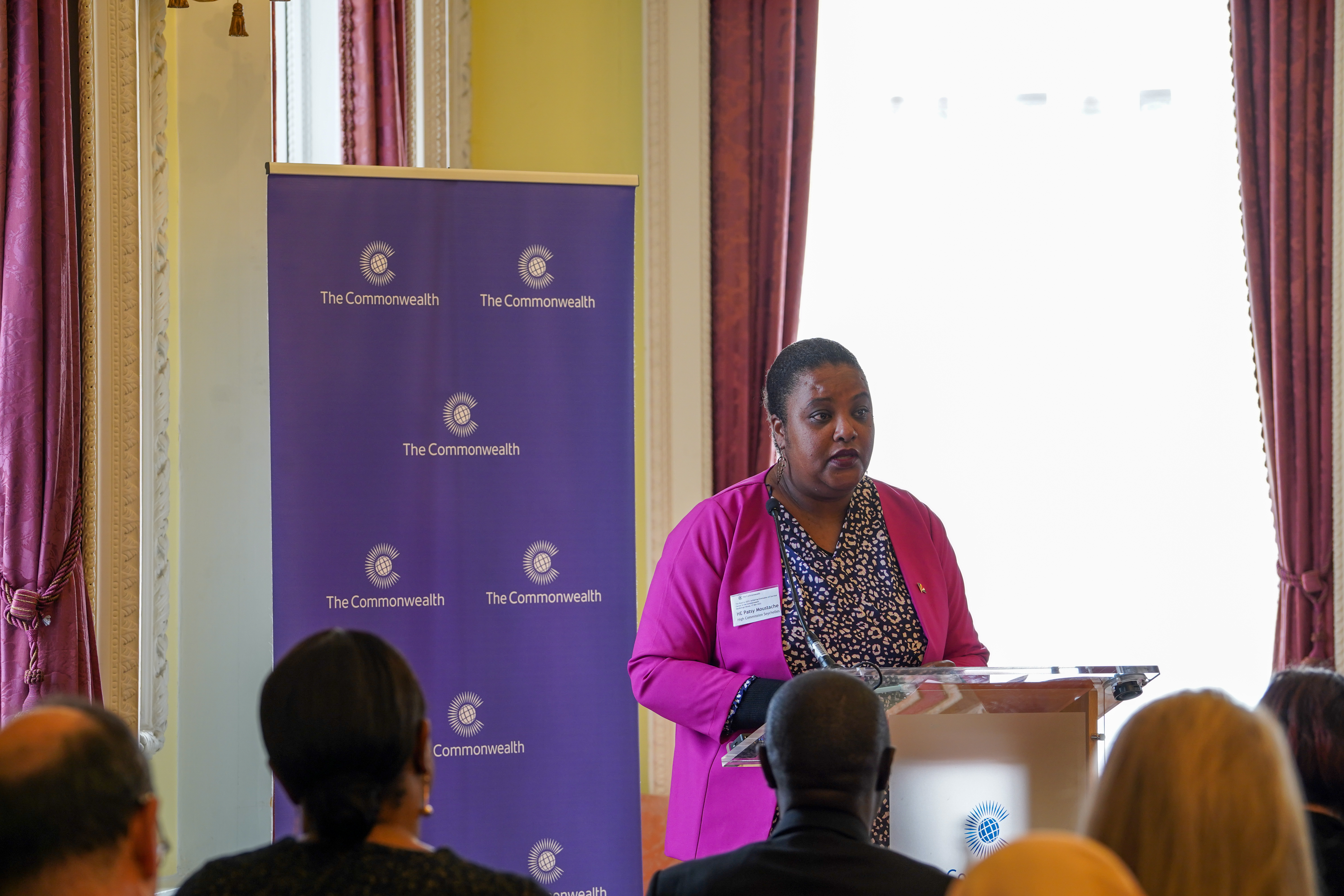
H.E. Ms Patsy Moustache, Seychelles High Commissioner
The programme included a short screening of the documentary, Conquering Cancer, which highlights cervical cancer elimination initiatives in various Commonwealth countries.
The documentary is available for distribution to Commonwealth countries, upon request. It will be released to Caribbean countries this month through the Caribbean Media Corporation. Media houses from across the Commonwealth are encouraged to take advantage of the opportunity to showcase the documentary in their countries, to increase awareness of cervical cancer.
- (Report) Conquering Cervical Cancer in the Commonwealth: Addressing Myths and Misconceptions
- Spouses and partners of Commonwealth Heads of Government commit to action on cervical cancer elimination
- A call to action to eliminate cervical cancer in the Commonwealth
- Learn more about our health work
Media contact
- Angela Kolongo Communications Officer, Communications Division, Commonwealth Secretariat
- T: +44 7587 881503 | E-mail

